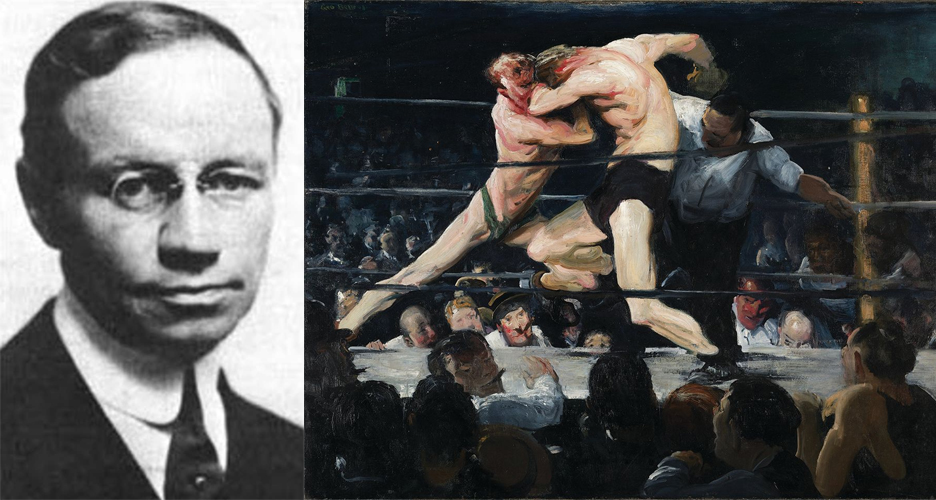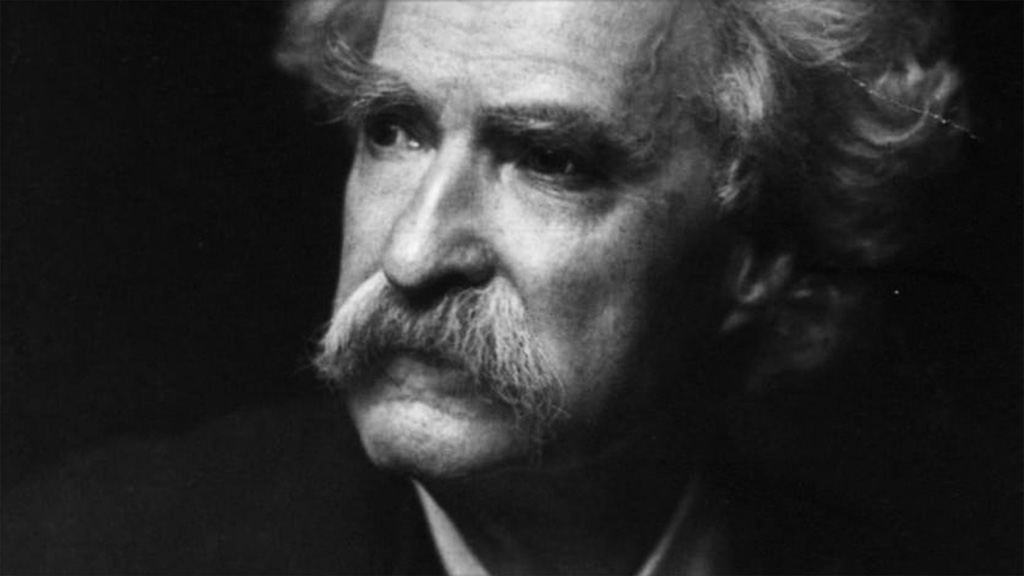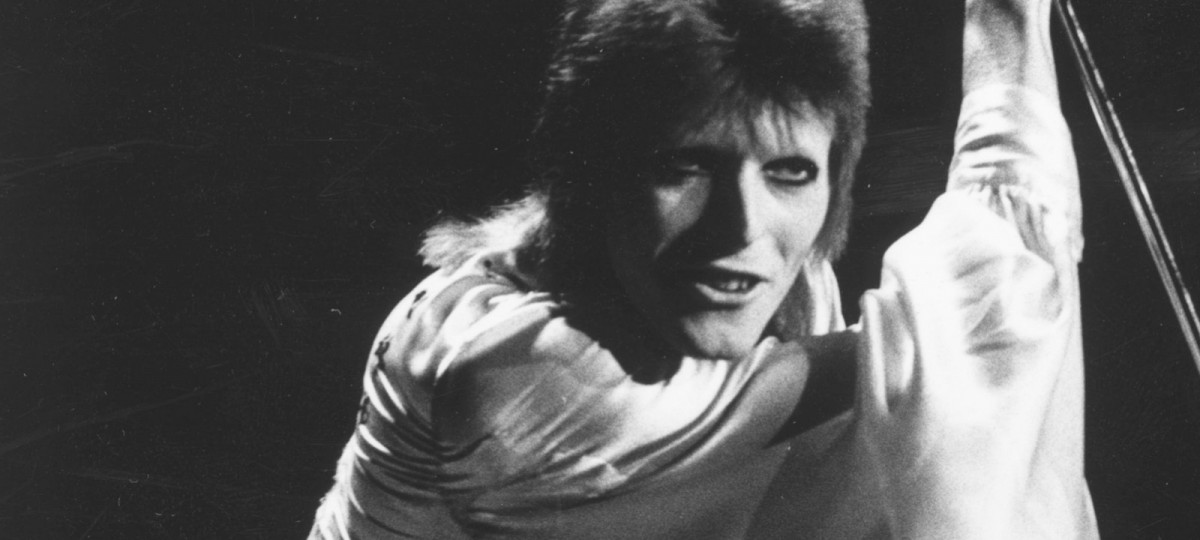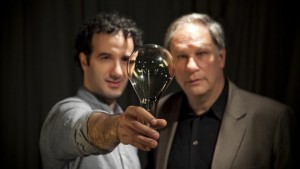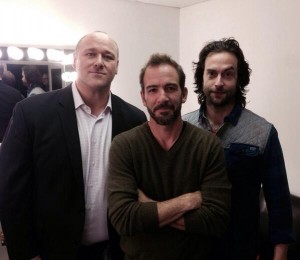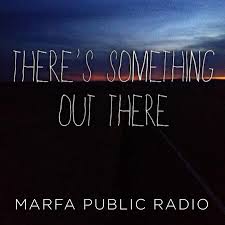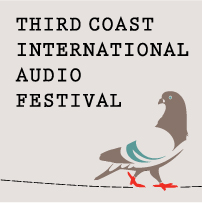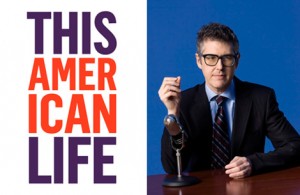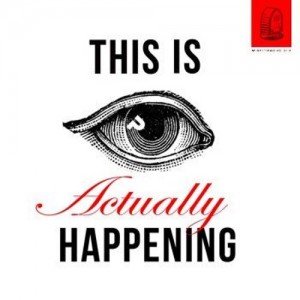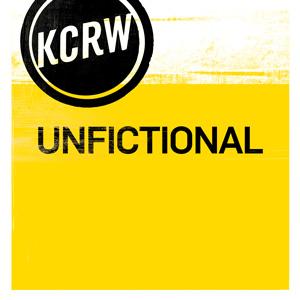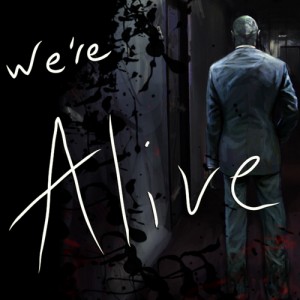(This is the sixth entry in The Modern Library Nonfiction Challenge, an ambitious project to read and write about the Modern Library Nonfiction books from #100 to #1. There is also The Modern Library Reading Challenge, a fiction-based counterpart to this list. Previous entry: In Cold Blood.)
 Before The New Republic devolved under Chris Hughes into a half-worthy husk of knee-jerk platitudes just a few histrionic clickbait headlines shy of wily Slate reductionism, it was a formidable liberal magazine for many decades, courageous enough to take real stands while sustaining vital dialogue about how and when government should intercede in important affairs. The source of this philosophical thrust, as duly documented by Franklin Foer, was the greatly diffident son of a prominent newspaperman, an unlikely progenitor who entered and exited Harvard many times without ever finishing, someone who suffered from severe depression and who, for a time, didn’t know what to do with his life other than play bridge and tennis and write about obscure architecture. But Croly found it in him to spill his views about democracy’s potential, what he called the “New Nationalism,” into a 1909 book called The Promise of American Life, which served as something of a manifesto for the early 20th century Progressives and became a cult hit among political wonks at the time. It partially inspired Theodore Roosevelt, who was proudly name-checked by Croly as “a Hamiltonian with a difference,” to initiate his ill-fated 1912 Bull Moose campaign as an outsider presidential candidate. (Historians have argued over the palpable influence of Croly’s book on Roosevelt, but it’s possible that, had not Croly confirmed what Roosevelt had already been thinking about, Roosevelt may not have entered the 1912 race as ardently as he did. With a more united Republican coalition against Wilson, America may very well have carried on with a second Taft term, with an altogether different involvement in World War I. Taft’s notable rulings as Chief Justice of the Supreme Court, which included extending executive power and broadening the scope of police evidence, may not been carried out in the 1920s. A book is often more of a Molotov shattering upon history’s turf than we are willing to accept.)
Before The New Republic devolved under Chris Hughes into a half-worthy husk of knee-jerk platitudes just a few histrionic clickbait headlines shy of wily Slate reductionism, it was a formidable liberal magazine for many decades, courageous enough to take real stands while sustaining vital dialogue about how and when government should intercede in important affairs. The source of this philosophical thrust, as duly documented by Franklin Foer, was the greatly diffident son of a prominent newspaperman, an unlikely progenitor who entered and exited Harvard many times without ever finishing, someone who suffered from severe depression and who, for a time, didn’t know what to do with his life other than play bridge and tennis and write about obscure architecture. But Croly found it in him to spill his views about democracy’s potential, what he called the “New Nationalism,” into a 1909 book called The Promise of American Life, which served as something of a manifesto for the early 20th century Progressives and became a cult hit among political wonks at the time. It partially inspired Theodore Roosevelt, who was proudly name-checked by Croly as “a Hamiltonian with a difference,” to initiate his ill-fated 1912 Bull Moose campaign as an outsider presidential candidate. (Historians have argued over the palpable influence of Croly’s book on Roosevelt, but it’s possible that, had not Croly confirmed what Roosevelt had already been thinking about, Roosevelt may not have entered the 1912 race as ardently as he did. With a more united Republican coalition against Wilson, America may very well have carried on with a second Taft term, with an altogether different involvement in World War I. Taft’s notable rulings as Chief Justice of the Supreme Court, which included extending executive power and broadening the scope of police evidence, may not been carried out in the 1920s. A book is often more of a Molotov shattering upon history’s turf than we are willing to accept.)
Croly’s book touched a nerve among a small passionate group. One couple ended up reading Croly’s book aloud to each other during their honeymoon (leaving this 21st century reader, comparing Croly’s thick “irremediable”-heavy prose style against now all too common sybaritic options, to imagine other important activities that this nubile pair may have missed out on). The newly married couple was Willard Straight and Dorothy Whitney. They had money. They invited Croly to lunch. The New Republic was formed.
So we are contending with a book that not only created an enduring magazine and possibly altered the course of American history, but one that had a profound impact on the right elite at the right time. So it was a tremendous surprise to discover a book that greatly infuriated me during the two times I read it, at one time causing me to hurl it with high indignant velocity against a wall, for reasons that have more to do with this gushing early 20th century idealist failing to foresee the rise of Nazism, the despicable marriage of racism and police brutality, growing income inequality, corporate oligarchy, draconian Common Core educational standards, and dangerous demagogues like George Wallace and Donald Trump.
But it is also important to remember that Croly wrote this book before radio, television, the Internet, women’s suffrage, two world wars, the Great Depression, smartphones, outrage culture, and 9/11. And it is never a good idea to read an older book, especially one of a political nature, without considering the time that it was written. I did my best to curb my instincts to loathe Croly for what he could not anticipate, for his larger questions of how power aligns itself with the democratic will of the people are still very much worth considering. Croly is quite right to identify the strange Frankenstein monster of Alexander Hamilton’s pragmatic central government and Thomas Jefferson’s rights of man — the uniquely American philosophical conflict that has been the basis of nearly every national conflict and problem that has followed — as a “double perversion” of our nation’s potential, even if Croly seems unwilling to consider that some “perversions” are necessary for an evolving democratic republic and he is often too trusting of executive authority and the general public’s obeisance to it. That these inquiries still remain irreconcilable (and are perverted blunter still by crass politicians who bellow about how to “make America great again” as they eject those who challenge them from the room) some 107 years after the book’s publication speaks to both the necessity and the difficulty of the question.
I’ve juxtaposed Croly’s meek-looking law clerk mien against George Bellows’s famous boxing painting (unveiled two years before Croly’s book) because there really is no better way to visualize the American individual’s relationship to its lumbering, venal, and often futile government. Croly’s solution is to call for all Americans to be actively engaged in a collaborative and faithful relationship with the nation: “to accept a conception of democracy which provides for the substantial integrity of his country, not only as a nation with an exclusively democratic mission, but as a democracy with an essentially national career.” On its face, this seems like a reasonable proposition. We all wish to belong in a democracy, to maintain fidelity to our country, and to believe that the Lockean social contract in which the state provides for the commonweal is a workable and reasonable quid pro quo. But it is also the kind of orgiastic meat and potatoes mantra that led both Kennedy and Reagan to evoke mythical American exceptionalism with the infamous “shining city upon a hill” metaphor. Dulcet words may make us feel better about ourselves and our nation, but we have seen again and again how government inaction on guns and a minimum wage that does not reflect contemporary living standards demands a Black Lives Matter movement and a “fight for $15.” And when one begins to unpack just what Croly wants us to give up for this roseate and wholly unrealistic Faustian bargain, we begin to see someone who may be more of a thoughtful and naive grandstander than a vital conceptual pragmatist.
Croly is right to demand that America operate with a larger administrative organ in place, some highly efficient Hamiltonian body that mitigates against “the evil effects of a loose union.” He smartly points out that such evils as slavery resulted from the American contradictions originating in the strange alliance between our poetic Jeffersonian call for Constitutional democracy and individualistic will and the many strains of populism and nationalism that followed. In his insistence on “the transformation of Hamiltonianism into a thoroughly democratic political principle,” Croly is suspicious of reformers, many of which he singles out in a manner strikingly similar to Norman Mailer’s “Quick and Expensive Comments on the Talent in the Room.” He calls William Jennings Bryan an “ill conceived” reformer, claims the now nearly forgotten William Travers Jerome to be “lulled into repose” by traditional Jeffersonian democracy (never mind Jerome’s successful crusades against Tammany Hall corruption, regrettably overshadowed by his prosecution of Harry K. Thaw during the Stanford White murder trial), interestingly pegs William Randolph Hearst as someone motivated by endless “proclaimation[s] of a rigorous interpretation of the principle of equal rights,” and holds up Teddy Roosevelt as “more novel and more radical” in his calls for a Square Deal than “he himself has probably proclaimed.”
But Croly’s position on reform is quite problematic, deeply unsettling, and often contradictory. He believes that citizens “should be permitted every opportunity to protest in the most vigorous and persistent manner,” yet he states that such protests “must conform to certain conditions” enforced by the state. While we are certainly far removed from the 1910 bombing of the Los Angeles Times building that galvanized the labor movement, as we saw with the appalling free speech cages during the 2004 Republican Convention, muzzling protesters not only attenuated their message but allowed the NYPD to set up traps for the activists, which ensured their arrest and detention — a prototype for the exorbitant enforcement used to diminish and belittle the Occupy Wall Street movement a few years later. Croly believes that the job of sustaining democratic promise should, oddly enough, be left to legislators and executives granted all the power required and sees state and municipal governments as largely unsuccessful:
The interest of individual liberty in relation to the organization of democracy demands simply that the individual officeholder should possess an amount of power and independence adequate to the efficient performance of his work. The work of a justice of the Supreme Court demands a power that is absolute for its own special work, and it demands technically complete independence. An executive should, as a rule, serve for a longer term, and hold a position of greater independence than a legislator, because his work of enforcing the laws and attending to the business details of government demands continuity, complete responsibility within its own sphere, and the necessity occasionally of braving adverse currents of public opinion. The term of service and the technical independence of a legislator might well be more restricted than that of an executive; but even a legislator should be granted as much power and independence as he may need for the official performance of his public duty. The American democracy has shown its enmity to individual political liberty, not because it has required its political favorites constantly to seek reëlection, but because it has since 1800 tended to refuse to its favorites during their official term as much power and independence as is needed for administrative, legislative, and judicial efficiency. It has been jealous of the power it delegated, and has tried to take away with one hand what it gave with the other.
There is no room for “Act locally, think globally” in Croly’s vision. This is especially ungenerous given the many successful progressive movements that flourished decades after Croly’s death, such as the civil rights movement beginning with local sit-ins and developing into a more cogent and less ragged strain of the destructive Jacksonian populism that Croly rightly calls out, especially in relation to the cavalier obliteration of the Second Bank of the United States and the Nullification Crisis of 1832, which required Henry Clay to clean up Jackson’s despotic absolutism with a compromise. On the Nullification point, Croly identifies Daniel Webster, a man who became treacherously committed to holding the Union together, as “the most eloquent and effective expositor of American nationalism,” who “taught American public opinion to consider the Union as the core and crown of the American political system,” even as he offers a beautifully stinging barb on Webster’s abolitionist betrayal with the 1850 speech endorsing the Fugitive Slave Act: “He was as much terrorized by the possible consequences of any candid and courageous dealing with the question as were the prosperous business men of the North; and his luminous intelligence shed no light upon a question, which evaded his Constitutional theories, terrified his will, and clouded the radiance of his patriotic visions.”
But Croly also promulgates a number of loopy schemes, including making representative legislatures at any level beholden to an executive who is armed with a near tyrannical ability to scuttle laws, even as he claims that voters removing representatives through referendum “will obtain and keep a much more complete and direct control over the making of their laws than that which they have exerted hitherto; and the possible desirability of the direct exercise of this function cannot be disputed by any loyal democrat.” Well, this loyal democrat, immediately summoning Lord Acton’s famous quote, calls bullshit on giving any two-bit boss that kind of absolute power. Because Croly’s baffling notion of “democracy” conjures up the terrifying image of a sea of hands raised in a Bellamy salute. On one hand, Croly believes that a democracy must secure and exercise individual rights, even as he rightly recognizes that, when people exercise these rights, they cultivate the “tendency to divide the community into divergent classes.” On the other hand, he believes that individuals should be kept on a restrictive leash:
[T]hey should not, so far as possible, be allowed to outlast their own utility. They must continue to be earned. It is power and opportunity enjoyed without being earned which help to damage the individual — both the individuals who benefit and the individuals who consent — and which tend to loosen the ultimate social bond. A democracy, no less than a monarchy or an aristocracy, must recognize political, economic, and social discriminations, but it must also manage to withdraw its consent whenever these discriminations show any tendency to excessive endurance. The essential wholeness of the community depends absolutely on the ceaseless creation of a political, economic, and social aristocracy and their equally incessant replacement.
There’s certainly something to be said about how many Americans fail to appreciate the rights that they have. Reminding all citizens of their duties to flex their individual rights may be a very sound idea. (Perhaps one solution to American indifference and political disillusion is the implementation of a compulsory voting policy with penalties, similar to what goes on in Australia.) But with such a middling door prize like this handed out at the democratic dance party, why on earth would any individual want to subscribe to the American promise? Aristocrats, by their very nature, wish to hold onto their power and privilege and not let go. Croly’s pact is thus equally unappealing for the struggling individual living paycheck to paycheck, the career politician, or the business tycoon.
Moreover, in addition to opposing the Sherman Antitrust Act, Croly nearly succumbs to total Taylorism in his dismissal of labor unions: “They seek by the passage of eight-hour and prevailing rate-of-wages laws to give an official sanction to the claims of the unions, and they do so without making any attempt to promote the parallel public interest in an increasing efficiency of labor. But these eight-hour and other similar laws are frequently being declared unconstitutional by the state courts, and for the supposed benefit of individual liberty.” Granted, Croly’s words came ten years before the passage of the Adamson Act, the first federal law enforcing a mandatory eight-hour day. But Croly’s failure to see the social benefits of well-rested workers better positioned to exercise their individual liberty for a democratic promise is one of his more outrageous and myopic pronouncements, even as he also avers how the conditions that create unrestricted economic opportunities also spawn individual bondage. But if Croly wants Americans to “[keep] his flag flying at any personal cost or sacrifice,” then he really needs to have more sympathy for the travails of the working stiff.
Despite all my complaints, I still believe some 21st century thinker should pick up from Croly’s many points and make an equally ambitious attempt to harmonize Hamilton and Jefferson with more recent developments. American politics has transformed into a cartoonish nightmare from which we cannot seem to escape, one that causes tax absolutist lunatics like Grover Norquist to appear remotely sane. That we are seeing a strange replay of the 1912 election with the 2016 presidential race, with Trump stepping in as an unlikely Roosevelt and Bernie Sanders possibly filling in for Eugene Debs, and that so many Americans covet an “outsider” candidate who will fix a government that they perceive as a broken system speaks to a great need for some ambitious mind to reassess our history and the manner in which we belong to our nation, while also observing the many ways in which Americans come together well outside of the political bear trap. For the American individual is no longer boxing George Bellows-style with her government. She is now engaged in a vicious MMA match unfurling inside a steel cage. Whether this ugly pugilism can be tempered with peace and tolerance is anyone’s guess, but, if we really believe in democracy, the least we can do is try to find some workaround in which people feel once again that they’re part of the process.
Next Up: William Appleman Williams’s The Contours of American History!
